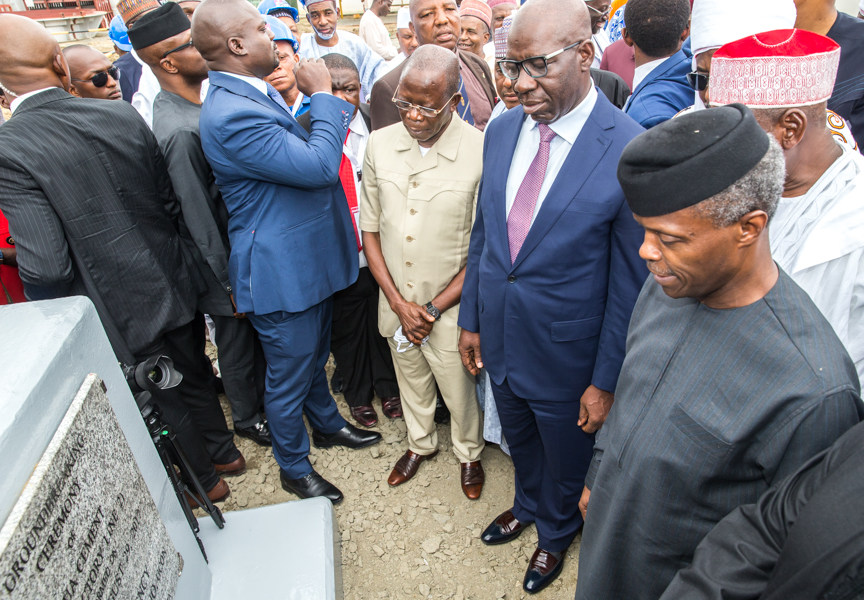By Innocent Okwuosa and Kenneth Amaeshi
It is no longer news that there has been a concerted effort on the part of some financial regulators in Nigeria to promote sustainable business practices in their various industries.
Examples of this include the Sustainable Banking Principles of the Central Bank of Nigeria (CBN), the Sustainable Stock Exchange Initiative of the Nigerian Stock Exchange (NSE), and the Sustainable Finance Principles promoted by the Financial Services Regulatory Coordinating Committee (FRSCC). These initiatives recognise the role of sustainability reporting.
Sustainability reporting is the art of capturing the environmental, social, and governance footprints of private and public organizations.Being aware of, and managing, environmental, social and governance risks facing a business is fast becoming a global practice. The two most popular international sustainability reporting standards are the Global Reporting Initiative (GRI) and US Sustainability Accounting Standard Board (SASB).
While the sustainable finance regulatory initiatives in Nigeria have the potential to further conversations on Environmental, Social, and Governance (ESG) risks and opportunities, empirical evidence suggests that a mandatory reporting requirement for businesses is a more powerful way of mainstreaming sustainability practice.This is because businesses always go for the minimum when it comes to reporting.
Advertisement
This is exactly what the Nigerian Stock Exchange seeks to achieve through its sustainability disclosure guideline issued in December 2016. Incidentally, the NSE held a Sustainability Reporting Seminar on June 8, 2016 to intimate stakeholders with the Guidelines, the reporting format and template, coupled with the real value proposition of reporting. The implementation of the guideline is expected to end in 2017.
However, the deadline is almost around the corner and not much has happened. There is a view that the NSE initiative might have remained a mere proposal up to this point. This is because, annual reports of listed companies in Nigeria, the vehicle of sustainability reporting proposed by the NSE, do not show the incorporation of material sustainability issues. It, therefore, appears that even the effort of the NSE, another member of the FSRCC, will not generate the necessary impetus required to make the real progress in sustainability reporting in Nigeria.
This is not a criticism of the NSE initiative. Hopefully, given the lag in reporting, the effects of the Guidelines could be from 2018 onwards.
Advertisement
Notwithstanding, this is where the Financial Reporting Council of Nigeria (FRCN) comes in. Section 45 of the FRCN Act provides that:
“The Council shall specify, in the accounting and financial reporting standards, the minimum requirements for recognition, measurement,presentation and disclosure in annual financial statements, group annual financial statements or other financial reports which every public interest entity shall comply with, in the preparation of financial statements and reports.”
This provision empowers the FRCN to play a significant role in institutionalising sustainability reporting among public interest entities in Nigeria.
Public interest entities are at present listed companies on the NSE. They are also the same group the NSE is targeting. Whereas the NSE could achieve its proposal through its listing requirements, it is the FRCN that can mandate sustainability reporting in order to fast-track the sustainability objectives of the NSE and the Nigerian financial regulators.
Advertisement
It is important to note that even the International Accounting Standards Board (IASB), through some recent initiatives on reporting, is discussing the place of non-financial information in a company’s annual reporting package. Such non-financial information includes sustainability reporting information.
Very soon, the FRCN will discover that financial reporting regulation is shifting towards an annual reporting package that will integrate both financial and non-financial reporting in the same package. This is what the recent movement towards integrated reporting is all about.
South Africa is the first country to mandate integrated reporting in its listing requirements.Research evidence shows immense capital market benefits for corporations that integrate both financial and non-financial information in their annual reporting package, which is now becoming international best practice. Nigeria competes with South Africa for foreign direct investment. The FRCN, therefore, cannot afford to be behind the curve in this area; otherwise South Africa will widen its competitive advantage when it comes to foreign direct investment.
Despite the obvious pressures of global and local competitions, the FRCN may find an ally in the Institute of Chartered Accountants (ICAN) who is already positioning its members in this direction. So, if capacity is an issue, the FRCN may consider partnering with ICAN and other experts who have developed capacity in this field.
Advertisement
What is however perplexing is that whereas the CBN, NSE, and FRSCC, amongst others,are engaged in the discussions and efforts at the diffusion of sustainability reporting in Nigeria, the FRCN appears to be missing in action. This article is, therefore, a call for FRCN to take its rightful position in the emerging sustainability reporting discourse and its integration with financial reporting in a public entity’s annual reporting package.
The fact that IASB is already positioning itself in this direction, should be a pointer to the FRCN that it cannot afford to fall behind.The FRCN has all it takes to be a leader in this space and should go for it. It is a strategic opportunity not worth missing!
Advertisement
Okwuosa is a senior lecturer in accounting and finance at Hertfordshire Business School, University of Hertfordshire, UK and a council member of both the Institute of Chartered Accountants of Nigeria and Chartered Institute of Bankers of Nigeria. He also consults with Entop Consulting Ltd. Manchester, UK.
Amaeshi is professor of business and sustainable development at the University of Edinburgh and a visiting professor of strategy and governance at the Lagos Business School. He is currently a scholar in residence at the National Pension Commission, Nigeria. He tweets @kenamaeshi and his opinions are private.
Advertisement






